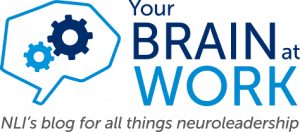By Erin Wickham Broadly, leadership is largely about making decisions. All day long. Every day. By the end of the week, or in the lead-up to big strategy sessions (like...
Read More →

FEATURED INSIGHT
By Erin Wickham Broadly, leadership is largely about making decisions. All day long. Every day. By the end of the week, or in the lead-up to big strategy sessions (like...
Read More →
Although most people would never admit to following the crowd, social norms are a surprisingly powerful impetus for behavior change.

Strategies leaders can take to prevent moral injury from having a lasting, negative effect on their organization.

Any type of job transition is hard, but particularly one in which your identity is so tied up in what you do. That’s what Eric Hipple, a former NFL quarterback for the Detroit Lions, found as he navigated life after pro football.

Science-backed ways to help you make sense of the world in times of crisis.

It can be helpful to reassess situations to regulate our emotions. But when we’re quite stressed, that reassessment could turn malevolent.

Join millions of employees in creating culture change at scale by reaching out today.

In 2007, David and Lisa Rock and their team had been working in leadership development and executive coaching for ten years, when David coined the term “NeuroLeadership.”ef

North America
Africa
South America
Asia
Europe
Australia
© NeuroLeadership Institute 2025. All Rights Reserved
This site uses cookies to provide you with a personalized browsing experience. By using this site you agree to our use of cookies as explained in our Privacy Policy. Please read our Privacy Policy for more information.